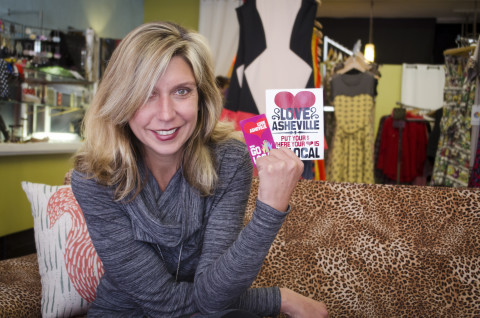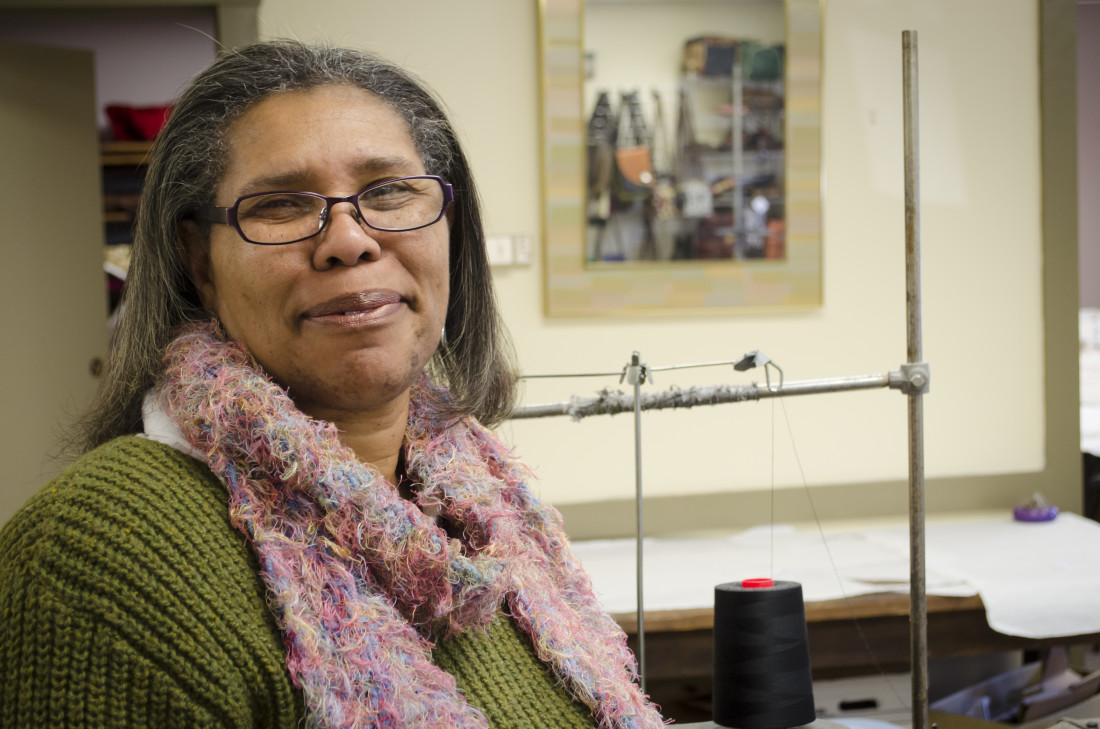Three overriding themes bolster the Bringing It Home conference:
- Building a strong local economy from the ground up.
- Seeing a strong local economy as an ecosystem that includes all income levels, races and creeds.
- Embracing both existing traditional structures as well as new innovative models as keys to the new economy — with examples found in both our region and other areas across the country.
Mountain Xpress sat down with Jane Hatley, western regional director of Self-Help Credit Union, to learn more about these themes.
Keeping it local
According to Hatley, Asheville’s local economy stands out as a positive, entrepreneurial role model for economic development. For example, one conference sponsor, Franzi Charen, founder and director of the Asheville Grown Business Alliance, has made good progress in helping build local commerce. The alliance is “a powerhouse that has been making people aware of how important it is to shop locally,” Hatley adds. “Where you buy your food or clothes,” she says, “either helps your neighbor or doesn’t.”

Another group moving the needle is the Asheville-based Center for Local Economies, which not only promotes but helps replicate successful local economies. One of the center’s main roles, Hatley says, is holding public forums and discussions, such as its series on Co-Creating the New Economy.
And don’t forget the work of Asheville Green Drinks, says Hatley, which encourages “people to look at the environment, but at the same time [understand how] the local economy relates to that.”
Other standout Asheville groups playing critical roles, notes Hatley, are Mountain BizWorks, a federally designated community-development financial institution, and Just Economics, which promotes living-wage jobs. “Not everybody wants to work in fields like service, tourism and hospitality,” she says. “So we have a long way to go. We need to support our small businesses more because they are the true job creators around here, and people still need to make that connection.”
An inclusive economy
There are many kinds of economic development. Some leave a community richer in one way, but worse off in others, says Hatley, such as big industrial operations that strip natural resources but create jobs. Other kinds enrich the community and make it a good place for everyone who lives there.
“If the conversation, from the beginning, does not include an awareness of the need to include all parts of society, then you invariably end up with an economic model that serves one part better than others,” Hatley says. “We hope, with this conference, to promote the values that Self-Help Credit Union has always held to be our guiding principles: inclusiveness, collaboration, fairness and social justice. We want this conference to build trust across the divides. Without trust, community action is impossible.”
With respect to inclusivity, Hatley believes Asheville “has done some things really well. … And while we’ve done some things badly in the past, there are good people and wonderful organizations that are working to fix that.”
For example, Eagle-Market Street Development and Block-by-Block Industries are trying to revitalize The Block, a historic center of African-American businesses downtown.
“Unfortunately, we don’t have as many minority-owned businesses [involved] in the economic discussion,” says Hatley, who emphasizes that a strong local economy “is not just a ‘white person’s discussion.’ Until we see that we are all in this together, those barriers will keep good things from happening. The conference won’t solve these problems, but it will shed some light. If we get a few light bulbs that go off in people’s heads, that’s great. I think what happens after the conference is just as important.”
Lessons learned and innovations
Good economic development projects allow for implementation of small, innovative experiments that individual entrepreneurs often shy away from due to the inherent risks, Hatley notes. They can stimulate economic innovation locally, regionally and nationwide.
“There’s a lot of creative energy bubbling up to live better than we have, and now it’s bubbling up in the financial industry,” Hatley observes. She’s encouraged by Boston’s New Economy Coalition, a group of organizations that experiments with new economic approaches, seeking insight from projects around the globe that prioritize community well-being as much as economic growth.
This approach to creative economic development isn’t just for big cities: According to Hatley, NEC’s designs are relevant to the Asheville economy, as well.
“I see us at a kind of crossroads where we could go either way, and I think it is important for us to ask ‘new economy’ type questions when we think about our future planning,” she says. “Asheville has experienced an annual 4.5 percent growth in population since 2000, and it shows no sign of slowing down. How can this new wave of urban revitalization not destroy the existing communities here now?”
To cite other examples closer to home, the Fund for Democratic Communities in Greensboro empowers its clients by showing them the their connection to the local economy. And Opportunity Threads in Morganton is a Latino worker-owned facility that has found a niche market offering custom sewing services.
The value of these organizations is that they show people what they can do locally, Hatley stresses. “You can shop local, source local for restaurants, use local farmers for food. I get excited about people who say, ‘I can do these things in my community.'”
Where do we go from here?
“In the field of economic development, we have not been very good at listening,” Hatley says. “We’ve been very good at telling, and I think the work that needs to be done is to listen to and learn from one another and make sure we are all sitting at the table together.”
That’s good news for conferencegoers, who will find both opportunities to be heard as well as to listen and ponder local approaches that have worked.
“It’s important to bring attention to the kinds of things that are already being done here locally by our anchor institutions,” Hatley says. “For example, UNC Asheville uses The Hop to supply ice cream for events, and they have a branch of Rosetta’s Kitchen on campus.”
Other large local institutions could follow suit, Hatley adds, and “could have a huge impact if they took a look at where they source things and go local when they can,” she says. “In a lot of cases, it is simply making the connection and asking, ‘If not me, who? If not now, when?”
WHAT: Entrepreneurs, investors, nonprofit workers, business professionals and all other interested individuals are invited to attend the Bringing It Home economic conference.
WHERE: The Haynes Center at A-B Tech’s Enka campus
WHEN: Wednesday, March 18, from 8:30 a.m. to 5 p.m.
TICKETS: $30 for general admission and $25 for students.
MORE INFO & RESERVATIONS: bringingithomewnc.org



Before you comment
The comments section is here to provide a platform for civil dialogue on the issues we face together as a local community. Xpress is committed to offering this platform for all voices, but when the tone of the discussion gets nasty or strays off topic, we believe many people choose not to participate. Xpress editors are determined to moderate comments to ensure a constructive interchange is maintained. All comments judged not to be in keeping with the spirit of civil discourse will be removed and repeat violators will be banned. See here for our terms of service. Thank you for being part of this effort to promote respectful discussion.